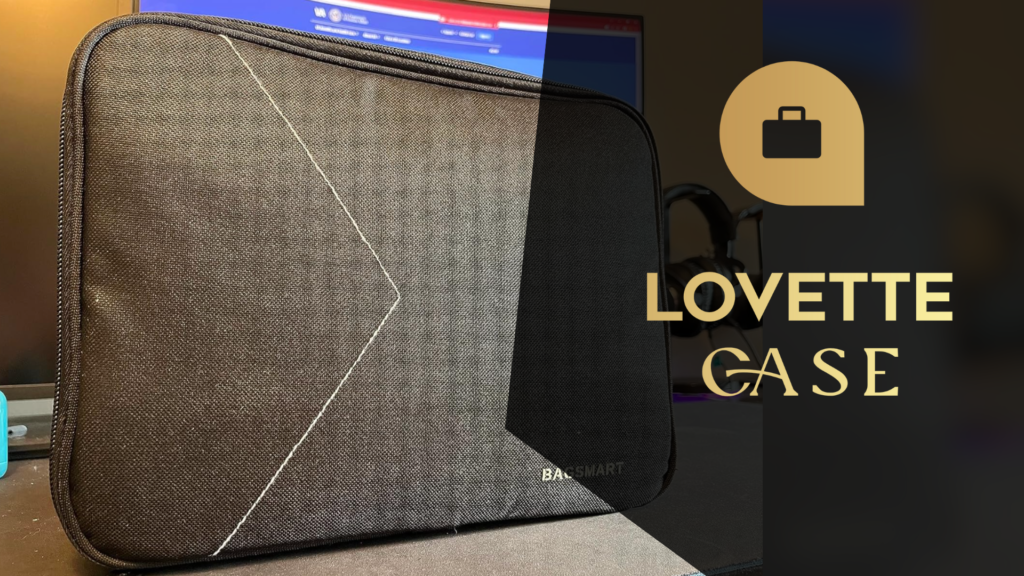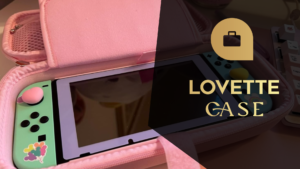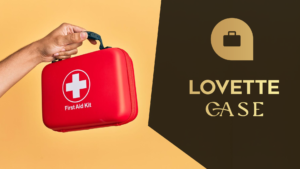Have you ever wondered how the items we cherish and rely on daily can be protected and transported in a way that is not just safe but also reflects our personal style or brand identity? Enter the world of custom soft carry cases, a realm where functionality meets personalized design. Whether you’re a professional exploring protective options for your high-tech gadgets, a business representative seeking to enhance your product’s presentation, or simply someone curious about the potential of custom soft carry solutions, you’ve come to the right place.
Custom soft carry cases offer versatile protection for diverse needs. Combining flexible materials like neoprene and nylon, they provide shock absorption and durability. Ideal for electronics, sensitive equipment, and style-conscious users, they balance protection with lightweight design, outperforming hard cases in adaptability and ease of storage.
The concept of a soft carry case transcends the traditional notion of a mere protective shell. These cases are crafted from materials like neoprene, high-grade nylon, or durable polyester – fabrics known for their combination of flexibility, resilience, and lightweight properties. Unlike hard cases, which offer rigid protection, soft carry cases provide a balance of safeguarding against impacts while conforming to the unique shapes and sizes of the items they hold. This adaptability makes them an ideal choice for a range of items – from delicate electronic gadgets like cameras and laptops to specialized equipment for music, sports, or even medical devices.
But the story of soft carry cases doesn’t end with their material and protective qualities. The true essence of these cases lies in their customizability. In a world where branding and individual expression are paramount, soft carry cases offer a unique opportunity. They become not just a protective layer, but a statement piece – a reflection of a brand’s identity or an individual’s style. Customization options are vast: varying in size, shape, color, and additional features like custom pockets, specialized compartments, and unique closure systems. They can be adorned with logos, bespoke designs, or patterns, transforming a functional item into a powerful marketing tool or a personal accessory that stands out.
Defining Soft Carry Cases
What Are Soft Carry Cases
A soft carry case represents a category of carrying solutions characterized by its flexible, malleable nature, distinguishing it fundamentally from its hard-case counterparts. The defining feature of a soft carry case is its construction from materials that allow for a degree of pliability and adaptability, enabling it to conform to the shapes and contours of its contents. This flexibility does not mean a compromise in protection; rather, soft carry cases are designed to offer a balanced safeguard against common forms of damage like scratches, minor impacts, and the wear and tear of daily use, all while providing a lightweight and user-friendly experience.
Materials in Soft Carry Cases
The choice of material in a soft carry case is crucial as it dictates not only the level of protection offered but also its overall feel and durability. Neoprene, a popular choice, stands out for its excellent cushioning and water resistance, making it ideal for sensitive electronics or sports equipment. Nylon, prized for its exceptional strength and resistance to wear, is often used in more rugged applications such as professional equipment or heavy-duty travel bags. Polyester offers a versatile option, available in a myriad of textures and designs, perfect for cases that need to be both functional and aesthetically pleasing. Lastly, canvas, with its durable and classic appeal, is favored for items like musical instruments or artistic tools, where a blend of traditional style and robust protection is desired.
Soft Carry Cases vs Hard Carry Cases
The dichotomy between soft and hard carry cases lies in their inherent structural differences and the resultant functional implications. Hard carry cases are defined by their rigid, unyielding frames, typically made from materials like hard plastics, metals, or reinforced composites. This construction offers unparalleled protection against severe impacts, crush forces, and harsh environmental conditions, often featuring waterproof and dustproof capabilities. However, this comes at the cost of increased weight and reduced internal flexibility. In contrast, soft carry cases, with their pliable fabrics, provide a protective environment that cushions against minor impacts and scratches, offering a lightweight and often more customizable alternative. Their adaptability makes them suitable for a wide range of items, with the added benefit of being collapsible for easy storage, a feature not commonly found in hard cases.
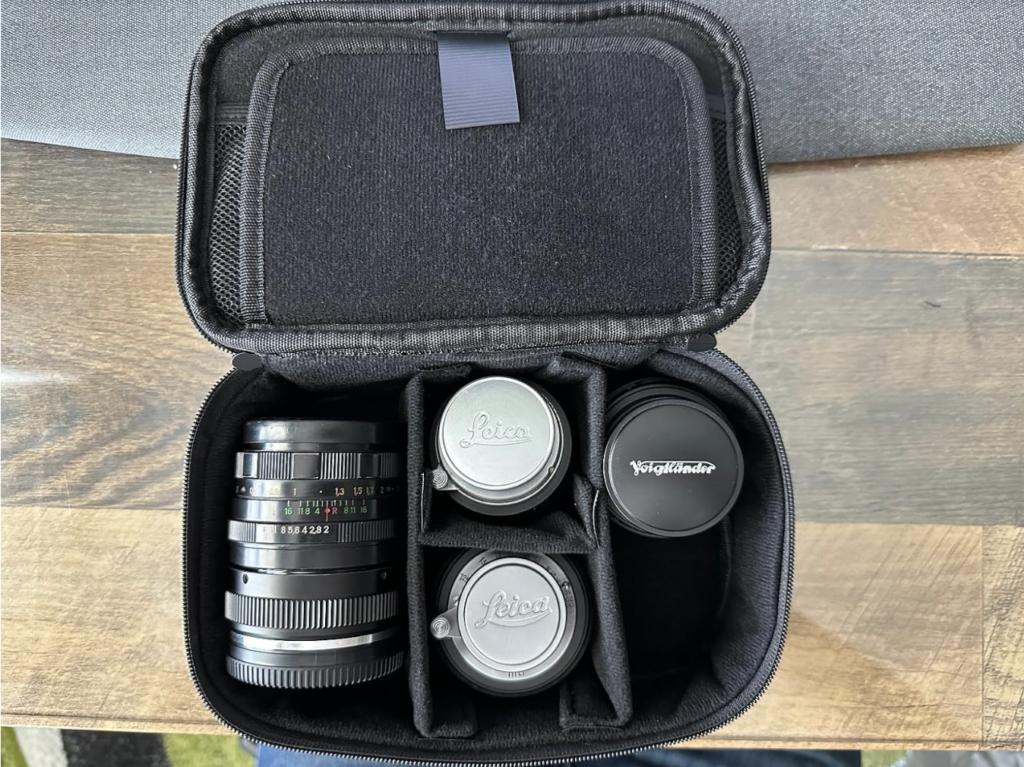
5 Types of Soft Carry Cases
The diverse world of soft carry cases encompasses a range of types, each designed to meet specific needs and preferences. In this section, we’ll explore the various types of soft carry cases, detailing their unique features and ideal usage scenarios.
Soft Shell Cases
Soft shell cases stand out for their semi-rigid structure, offering a sweet spot between the flexibility of soft materials and the protective rigidity of a hard case. Typically crafted from durable fabrics combined with foam padding, these cases provide excellent shock absorption, making them ideal for protecting electronics like laptops, tablets, and cameras. Their water-resistant qualities and lightweight design make them popular among professionals and casual users alike who seek protection without bulk. For instance, a photographer on a field trip or a commuter with a laptop will find a soft shell case invaluable for safeguarding their devices against the jolts and jostles of travel.
Padded Cases
Padded cases are the go-to choice for transporting delicate and sensitive equipment. These cases are characterized by their multiple layers of cushioning materials, such as foam, which are enclosed in a soft yet durable exterior. They are particularly favored for items that demand extra protection from impacts, like photographic equipment, drones, or musical instruments. The snug fit and enhanced padding ensure that items remain securely in place, providing peace of mind for professionals like photographers or musicians who regularly transport their valuable tools and equipment.
Neoprene Cases
Neoprene cases are known for their stretchable and water-resistant properties, derived from the same material used in wetsuits. These cases offer a form-fitting and lightweight solution, ideal for smaller gadgets like smartphones, external hard drives, or portable power banks. The cushioning effect of neoprene is excellent for protecting devices from everyday knocks and minor impacts, making them a preferred choice for individuals who lead an active lifestyle and need a durable yet compact protective case.
Fabric Cases
Fabric cases, made from a variety of materials including canvas, polyester, or cotton blends, blend functionality with fashion. These cases come in an array of designs, patterns, and colors, allowing for personal expression while providing basic protection. They are perfect for items like tablets, e-readers, or even cosmetics, catering to users who value individuality and style in their accessories. Fabric cases appeal to those who see their carrying solution as an extension of their personal aesthetic, offering a trendy and customizable way to protect their belongings.
Specialized Use Cases
Each type of soft carry case caters to specific consumer needs and product types. For tech professionals and enthusiasts, soft shell cases offer an optimal blend of protection and portability. Padded cases are indispensable for those in fields like photography or music, where delicate equipment requires robust protection. Neoprene cases are suited for active users who need a compact and resilient case for their gadgets, while fabric cases appeal to the style-conscious, offering a chic way to safeguard personal items. Understanding these nuances helps consumers choose the right type of soft carry case for their specific lifestyle and equipment needs.
Customization in Soft Carry Cases
The allure of soft carry cases lies not only in their protective capabilities but also in the extensive customization options they offer, allowing for a truly personalized product that meets specific functional and aesthetic needs.
Overview of Tailoring Soft Cases
Customization in soft carry cases is a journey of turning a standard product into a unique, personalized item. This process involves a variety of choices, from the practical elements of size and material to the aesthetic aspects of color and design. For both individual consumers and businesses, these customization options are pivotal in creating a product that not only serves its protective purpose but also aligns with personal preferences or brand identity.
Customizing Size, Material, and Color
- Size Customization: The customization process often begins with size. Whether it’s a compact case for a small gadget or a larger bag for bulky equipment, the size of a soft carry case can be tailored to fit the dimensions of virtually any item, ensuring optimal protection and convenience.
- Material Choices: The material of a soft carry case determines not just its look and feel, but also its protective qualities. Options range from durable and water-resistant fabrics like nylon or polyester to more luxurious choices like leather, each bringing its unique advantages in terms of durability, weight, and texture.
- Color Personalization: The color of a case is a powerful tool for personal or brand expression. Choices can range from subtle and professional tones to bold and vibrant hues, enabling the case to stand out or align with a corporate color scheme. Patterned fabrics and themed designs further expand the possibilities, allowing for creative expression.
Functional and Stylish Features
Soft carry cases can be enhanced with a variety of functional features, such as extra pockets for accessories, padded compartments for additional protection, and adjustable straps for ease of carrying. These features not only increase the utility of the case but also contribute to its overall design, allowing for a blend of practicality and style.
Branding Your Soft Case
Branding is a crucial aspect of customization for business use. Techniques for branding soft carry cases include:
- Logo Printing: The most common method, logo printing, can range from simple one-color designs to complex full-color graphics, making the case an effective marketing tool.
- Embroidery: For a more sophisticated look, embroidery offers a high-end finish, giving the case a textured, three-dimensional brand representation.
- Unique Branding Solutions: Beyond logos, cases can be customized with branded zippers, tags, and even unique stitching patterns, allowing for subtle yet effective brand promotion.
Customizing a soft carry case offers a unique opportunity to blend functionality with personal or corporate branding, turning a simple protective case into a statement piece. Through thoughtful choices in size, material, color, additional features, and branding options, each case can be transformed into a unique representation of the user’s needs and style.
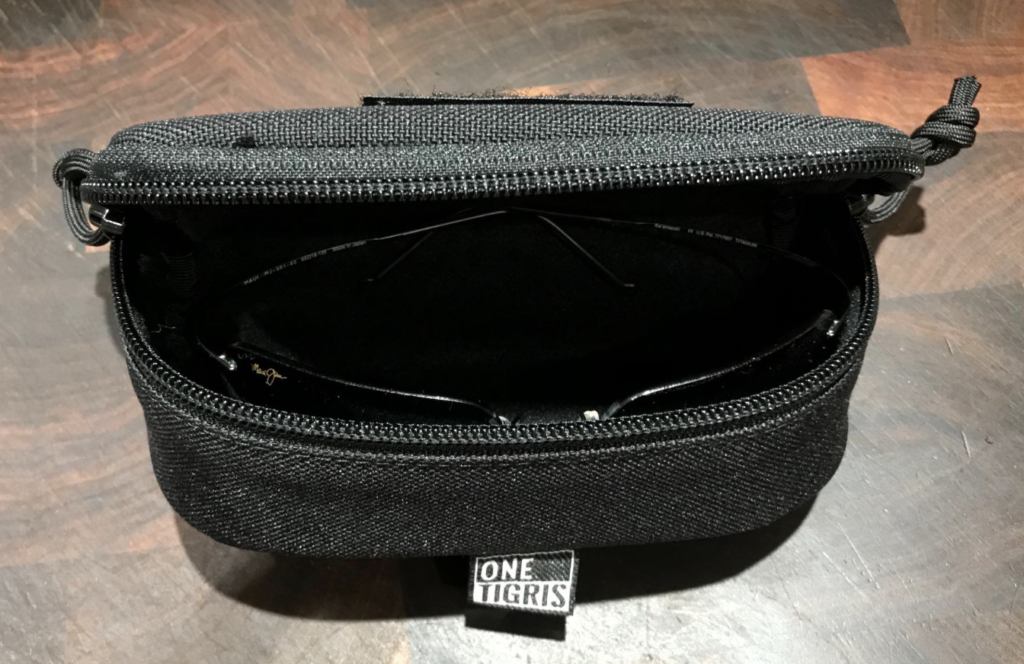
Soft Case Uses in Various Industries
The versatility of soft carry cases makes them indispensable across various industries, each with its specific requirements and challenges. This section delves into the distinct ways these cases are utilized in different sectors, underscoring their adaptability and functionality.
Electronics Industry Soft Case Applications
In the electronics industry, the primary concern is safeguarding delicate devices from impacts, moisture, and dust. Soft carry cases for electronics, such as laptops, tablets, and cameras, are often custom-designed with padded interiors, water-resistant fabrics, and specialized compartments for accessories. For example, a bespoke case for a high-end laptop might include not only a shock-absorbent foam layer but also compartments for storing chargers, cables, and other peripherals, offering comprehensive protection and organization for tech professionals on the move.
Soft Cases in Photography and Videography
Photographers and videographers require cases that provide both protection and easy access to their equipment. Custom soft carry cases in this field are designed with specific camera and lens dimensions in mind, featuring adjustable foam inserts or dividers for a secure and snug fit. A real-world application could be a custom case for a DSLR camera setup, equipped with padded dividers and pockets for various lenses and accessories, ensuring each item is individually protected and easily accessible during fieldwork.
Soft Cases for Sports and Outdoor Gear
For sports and outdoor activities, cases must withstand rough handling and varying environmental conditions. Soft carry cases for items like golf clubs, fishing gear, or camping equipment are tailored for rugged use, using materials like reinforced nylon and incorporating additional padding for impact resistance. An example in this category might be a tailor-made case for outdoor sports equipment, featuring robust construction and ergonomic design for comfortable carrying during outdoor adventures.
Soft Cases in Medical and Healthcare
In the healthcare sector, soft carry cases must meet stringent standards for hygiene and organization. They are used for transporting medical devices, emergency kits, and pharmaceuticals, often made with materials that are easy to sanitize and designed with custom compartments for various medical tools. For instance, a portable medical device might have a bespoke soft case with antimicrobial fabric and custom foam inserts, ensuring both protection and compliance with health standards.
Industry Case Studies for Soft Cases
- Tech Startup Example: A tech startup specializing in innovative drone technology utilized a custom soft case designed for the easy transport and protection of their drones. This case featured lightweight, durable materials and custom compartments for each drone component, crucial for their demonstrations and client meetings.
- Professional Photography Use Case: A professional photographer commissioned a specialized soft carry case for her photography gear. This case was designed with weather-resistant materials and customizable padded compartments, allowing her to safely transport her equipment to various outdoor locations and quickly access her gear when needed.
These examples illustrate the critical role soft carry cases play in different industries, adapting to the unique needs of each sector, from protecting delicate electronics to ensuring the safe transport of professional equipment.
Advantages of Soft Carry Cases
Soft carry cases offer a multifaceted range of benefits, making them an ideal choice for a variety of uses. This section delves into the specific advantages they bring, from protection and convenience to flexibility and environmental friendliness.
Protection and Flexibility in Soft Cases
The cornerstone of soft carry case design is the balance between protective features and flexibility. These cases are typically crafted from materials that provide excellent shock absorption, such as foam padding or cushioned linings, which are crucial for safeguarding sensitive items like electronic gadgets, precision instruments, or fragile equipment. For example, a soft case for a high-end camera not only protects it from accidental drops and impacts but also conforms to its unique shape, ensuring a snug and secure fit. This balance is particularly beneficial for items that require both safety and a gentle touch, as the soft material accommodates and protects without adding the bulk or rigidity of a hard case.
Convenience and Design in Soft Cases
Soft carry cases are designed with user convenience in mind. Their lightweight nature makes them an ideal companion for daily commuters, travelers, and professionals who require ease of movement. The flexibility of the material allows these cases to fit into constrained spaces – a feature particularly valuable in situations like air travel where storage space is limited. Additionally, the inclusion of features such as adjustable straps, ergonomic handles, and easy-access pockets enhances their functionality, making them not only protective but also exceptionally convenient for carrying various items.
Customization and Versatility of Soft Cases
Customizability is another significant advantage of soft carry cases. They can be tailored to specific dimensions and requirements, accommodating a wide range of items – from medical devices and sports equipment to tech gadgets and musical instruments. This adaptability is complemented by the possibility of customization in aesthetics, including color, pattern, and branding elements like logos or embroidery. This level of personalization not only ensures that the case meets the exact protective needs but also enables individuals and businesses to express their style or brand identity.
Environmental Benefits of Soft Cases
In an era where environmental impact is a growing concern, soft carry cases offer an eco-friendly alternative. Many are made from sustainable, recyclable, or biodegradable materials, which contributes to a reduced environmental footprint. For instance, cases made from recycled fabrics or natural fibers like cotton and hemp provide durable protection while supporting sustainable practices. Opting for such environmentally considerate options appeals to eco-conscious consumers and reflects a commitment to sustainability, an increasingly important factor in consumer choice.
Soft Carry Cases Design and Manufacturing
The creation of a custom soft carry case is a complex and nuanced process, involving meticulous steps from initial design to the final product. This journey is marked by a careful consideration of both aesthetic and functional aspects, ensuring that the end result is not only visually appealing but also highly effective in its purpose.
Concept Crafting in Soft Case Design
The design stage of a soft carry case is a critical phase where functionality meets creativity. It begins with a thorough analysis of the customer’s needs, considering factors like the dimensions of the item to be carried, its weight, and the environmental conditions it will be exposed to. Designers then select appropriate materials, balancing factors like durability, weight, and protective qualities. For example, a case for outdoor equipment might require water-resistant and rugged materials, while one for electronics would need softer, cushioned fabrics. The design is then rendered using advanced software, creating detailed blueprints and 3D models. This phase often culminates in the creation of a prototype, which is rigorously tested and refined to ensure it meets all specified requirements.
Precision Manufacturing of Soft Cases
Once the design is finalized, the manufacturing process begins. This involves precision cutting of materials, ensuring each piece is perfectly sized for assembly. The sewing process, often a combination of machine and hand stitching, is crucial for ensuring durability, especially at seams and stress points. Additional features like zippers, pockets, and custom compartments are added, each selected for their quality and functionality. The case then undergoes branding, which might include logo printing, embroidery, or other techniques, adding to its aesthetic appeal and brand recognition.
Quality Assurance in Soft Case Production
Quality assurance is integral at every stage of the manufacturing process. Materials undergo rigorous testing for factors like tensile strength, abrasion resistance, and water repellency. Functional elements, such as straps and zippers, are tested for durability and ease of use. Stress tests simulate real-world usage conditions, ensuring the case can withstand regular use without fail. This meticulous testing regime ensures that every soft carry case not only meets the aesthetic and functional expectations of the customer but also stands the test of time in real-world conditions.
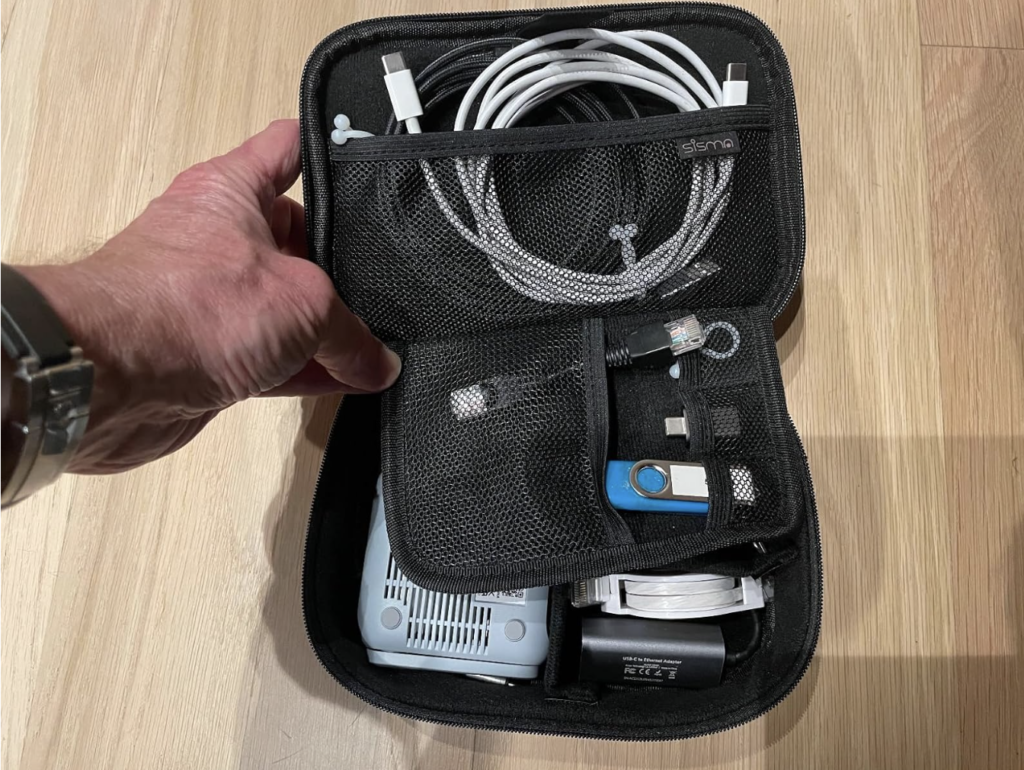
Trends in Soft Carry Case Design
The landscape of soft carry cases is rapidly evolving, driven by advancements in materials, design, and technology. This section delves into these cutting-edge trends, examining how they’re shaping the future of carry cases and their impact on users and industries.
New Materials and Designs in Soft Cases
The material innovation in soft carry cases is breaking new ground, offering enhanced durability, functionality, and environmental sustainability. We are witnessing the rise of:
- Advanced Synthetic Fibers: Materials like Dyneema and Cordura are gaining popularity for their exceptional strength-to-weight ratios, offering robust protection in a lighter package, ideal for heavy-duty applications without adding bulk.
- Biodegradable and Recycled Materials: In response to environmental concerns, the market is seeing an increase in cases made from recycled plastics and biodegradable materials, significantly reducing the carbon footprint of products.
- Smart Fabrics and Self-Repairing Materials: Futuristic materials that change color based on temperature or can self-repair minor cuts and abrasions are in development, promising to extend the life of the cases and enhance their functionality.
Design trends are also shifting towards greater personalization and adaptability. Modular designs, with interchangeable parts or expandable compartments, are becoming more prevalent, allowing users to customize their cases for different needs. Ergonomic features like breathable back panels and weight-distributing straps are being incorporated to enhance comfort during prolonged use.
Future of Soft Carry Case Technology
The horizon of soft carry case technology is brimming with potential, from enhanced user interaction to eco-friendly practices:
- Integration of Electronic Features: The incorporation of technology, like RFID blocking pockets, built-in solar panels for charging devices, or embedded tracking devices, is on the rise, transforming cases into smart accessories.
- 3D Printing and Customization: The use of 3D printing technology is expected to revolutionize customization, allowing for tailor-made cases that fit the exact specifications and style preferences of users.
- Eco-Driven Manufacturing Processes: Anticipated advancements in manufacturing include the use of renewable energy sources and closed-loop systems, further reducing the environmental impact of production.
User and Industry Advantages in Soft Cases
These emerging trends promise a multitude of benefits for users and various industries:
- Superior Performance and Longevity: Innovations in materials and design are enhancing the protective qualities of soft carry cases, ensuring they can withstand tougher conditions and last longer.
- Increased Practicality and Efficiency: Features like integrated technology and ergonomic design improvements are set to elevate the user experience, offering convenience and efficiency that cater to modern lifestyles and work environments.
- Contribution to Environmental Goals: The shift towards sustainable materials and manufacturing aligns with global environmental objectives, appealing to the growing demographic of eco-conscious consumers and businesses.
Soft carry cases offer an impressive array of features, from superior protection and unmatched convenience to extensive customizability and environmental friendliness. These cases provide a unique blend of flexibility and durability, ensuring that sensitive equipment, personal gadgets, and professional tools are safeguarded in style. The evolving landscape of materials and designs in soft carry cases points to a future where efficiency, sustainability, and user-centric innovations continue to thrive.
At Lovette Case, we understand that every client has unique requirements, and we believe strongly in the power of customization. Our soft carry cases are designed to meet specific needs, whether it’s for individual use or for branding purposes. We offer a variety of customization options, including size adjustments, material selection, and the incorporation of brand elements. This level of personalization ensures that each case we create is not just a protective cover but a reflection of the user’s style or brand identity.

